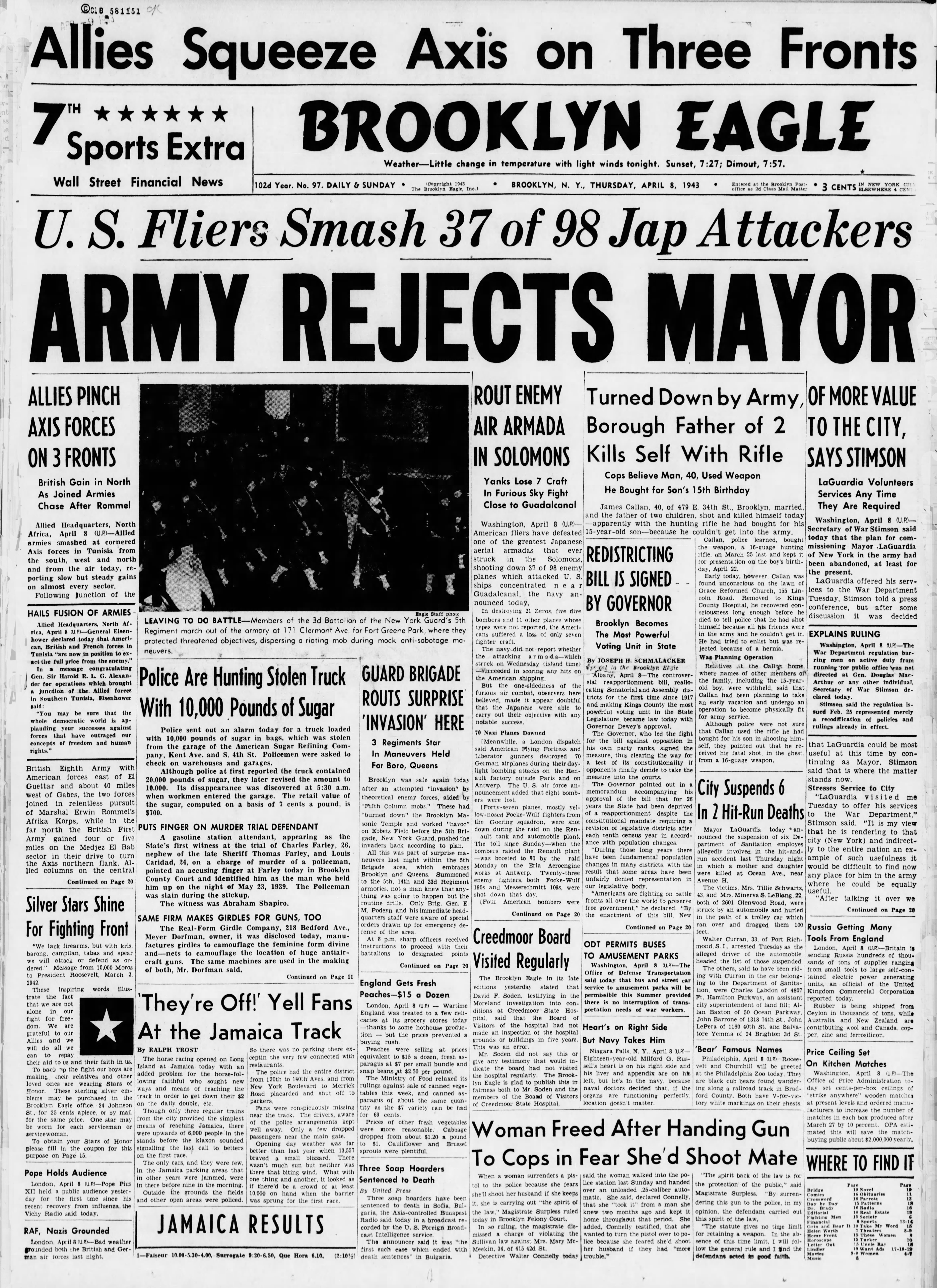April 8: ON THIS DAY in 1943, army rejects mayor

ON THIS DAY IN 1865, the Brooklyn Daily Eagle reported, “There is little added today to the war news upon which our comments upon the military situation, yesterday, were based. As we supposed, the reported surrender of Lee’s army was premature, and was contradicted later in the day. The more demoralized Lee’s army is, the less will be the chance of a general surrender. There is every reason to believe that Lee’s army has fought its last battle. There is no resting place for it. Today it is announced that Hancock is moving up the valley of the Shenandoah, on Lynchburg. Stoneman is advancing from another direction on the same point. Sheridan will be able to prevent a retreat on Danville. From Sherman we have no news, but it is not to be assumed that he is inactive. The Confederacy is now a thing of history.”
***
ON THIS DAY IN 1877, an Eagle music review stated, “Some two thousand [people] last Thursday evening attended the performance of Wagner’s ‘Die Walkure.’ As a matter of fact, apart from the pretense of appreciating the latest novelty, what did they think of it? Granted that Mr. Fryer’s troupe of singers sang it remarkably well, as we believe they did, and that with a few allowances it was as true an interpretation of Wagner’s idea as we can hope for in this country, was it not, frankly speaking, a bore? How many of those who were present found any real enjoyment in it? How many of them understood the composer’s thought through it? What did those crashes of brass instruments and dim discords of a full orchestra mean? What thoughts did they suggest? Is it not true, if our readers merely ponder the matter and confess it to themselves, that the music of the future was a chaotic, unintelligible, deafening jargon utterly beyond their comprehension?”

Brooklyn Boro
View MoreNew York City’s most populous borough, Brooklyn, is home to nearly 2.6 million residents. If Brooklyn were an independent city it would be the fourth largest city in the United States. While Brooklyn has become the epitome of ‘cool and hip’ in recent years, for those that were born here, raised families here and improved communities over the years, Brooklyn has never been ‘uncool’.